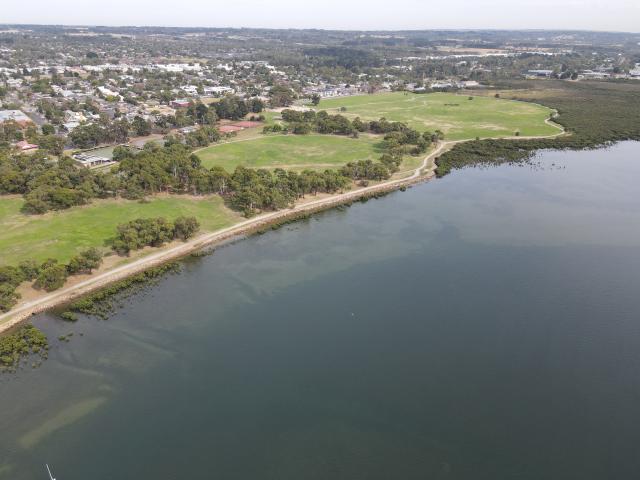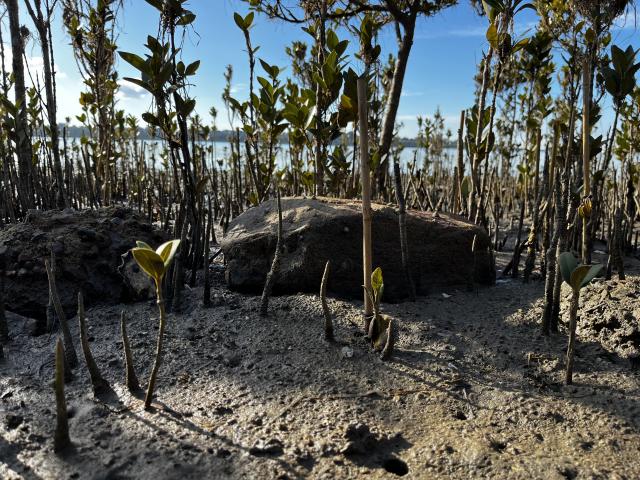By Violet Li
A Western Port project delivered by Melbourne Water has restored native recreational fish habitats across one of Victoria’s internationally recognised Ramsar wetlands.
Named The Reel Big Fish, the project coordinated community groups, volunteers, and fishing groups to restore mangrove forests at priority locations along Western Port intertidal zone, including Churchill Island Marine National Park, French Island Marine National Park, Lang Lang Foreshore, Grantville Foreshore, and Hastings Foreshore.
Found in tropical and subtropical tidal areas, mangrove forests are rooted in salty sediment, often underwater, with their upper trunks, branches, and leaves living above the water.
They provide important nursery habitats for many species of fishes and invertebrates and protect the coastlines from erosion induced by waves, storm surges, currents, and tides.
Mangrove populations in Western Port have been threatened by harvesting, vegetation removal and fragmentation, according to Melbourne Water.
The Commissioner for Environmental Sustainability Victoria also found that sea level rising had been affecting mangrove encroachment along Western Port.
Started in 2020, the Reel Big Fish project saw over 10,000 mangrove seed planted across the span of three years.
Utilising a method refined by the Bass Coast Landcare Network, the seeds were tied to bamboo stakes and planted among established mangroves for added protection, ensuring they thrive.
Melbourne Water senior asset planner of land and catchments Andrew Morrison said the restoration had increased the critical habitat for recreational juvenile fish species including Snapper, Flathead, King George Whiting, Gummy Shark, and Calamari.
“Juvenile fish will utilise a mangrove forest network of woody material and pneumatophores [breathing roots] for protection against predators, for the provision of shade, and as a sanctuary for insects and invertebrates,” he said.
“This approach ensures the ongoing establishment of a healthy coastal ecosystem for fish and provides the greatest opportunity for plant survival.”
Mangrove population has been anticipated to increase by 3 per cent as a result of restoration.
The project also engaged local fishers and educated them on what they could do to continue the restoration work currently being undertaken.
Western Port has been identified as a highly preferred fishing location according to a survey of recreational fishing license holders.
The Mangrove Restoration Fishing Group of Western Port was established in 2021 by OzFish, helping to train and connect recreational fishers, increase their knowledge on the needs of fish, and inspire program advocacy.
Over 200 recreational fishers will be engaged in events, workshops, and participated in on-ground restoration works.
This project was supported with funding from the Australian Government in partnership with the Bass Coast Landcare Network, OzFish, and Mornington Peninsula Shire.








